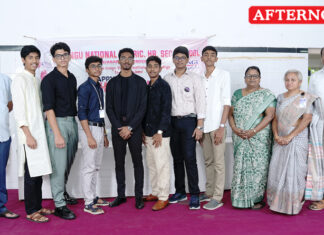Tamil Nadu Chief Minister M.K. Stalin has written to Prime Minister Narendra Modi, seeking urgent relaxation of paddy moisture norms from 17% to 22%, as the state records an unprecedented surge in procurement during this year’s Kuruvai (Kharif) season.
In his letter, Stalin noted that Tamil Nadu—especially the Cauvery Delta districts—has achieved the highest Kharif season paddy procurement in its history. As of November 16, 2025, the state has procured 14.11 lakh metric tonnes, a nearly threefold increase from 4.83 lakh tonnes during the same period last year. This surge was facilitated through 1,932 direct procurement centres — up from 1,095 last year — benefiting 1.86 lakh farmers at a cost of Rs 3,559 crore.
Given the marketable surplus of paddy forecast to reach 98.25 lakh tonnes (66.81 lakh tonnes of rice by August 2026), Stalin urged the Centre to raise Tamil Nadu’s rice procurement target from 16 lakh to 20 lakh metric tonnes for the 2025–26 Kharif Marketing Season.
But the looming northeast monsoon threatens to dampen the celebration. The Meteorological Department has forecast intensified rains from November 16, likely to increase moisture levels in harvested paddy. Although central teams assessed field conditions in late October, the Union Government is yet to issue relaxation orders on moisture content—putting farmers in jeopardy.
Stalin also flagged delays in the testing and approval of enriched rice (Fortified Rice Kernels or FRK), which are essential for paddy milling. Tamil Nadu has already produced 1,760 metric tonnes of enriched rice, but approvals are slow—taking up to 12 days for test results.
To expedite processing, Stalin recommended increasing the FRK bag size from 25 kg to 50 kg, expanding the sample lot size from 10 MT to 25 MT (as per BIS standards), and authorizing Food Corporation of India officials in South India to conduct sampling and testing locally.
The Chief Minister concluded by urging the Prime Minister to intervene immediately, saying these measures are “critical to sustaining procurement momentum and safeguarding the livelihoods of Tamil Nadu’s farmers.”







